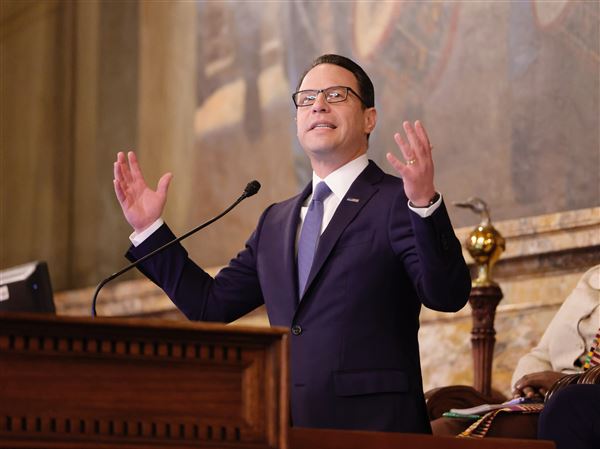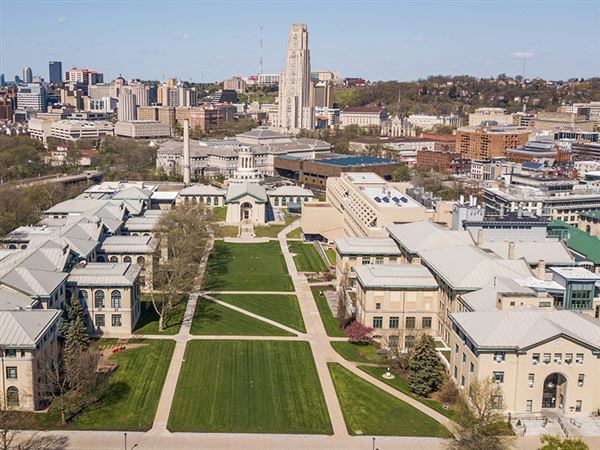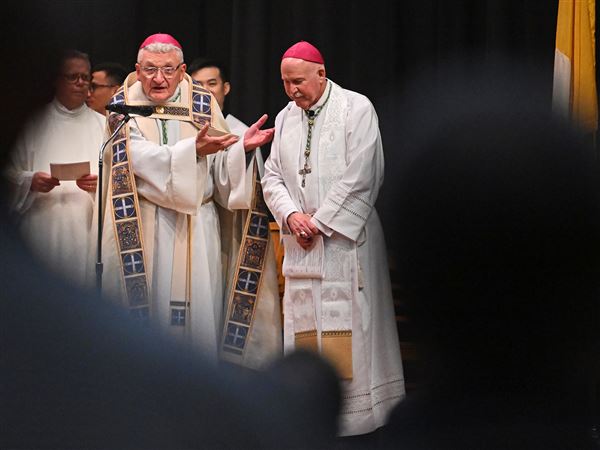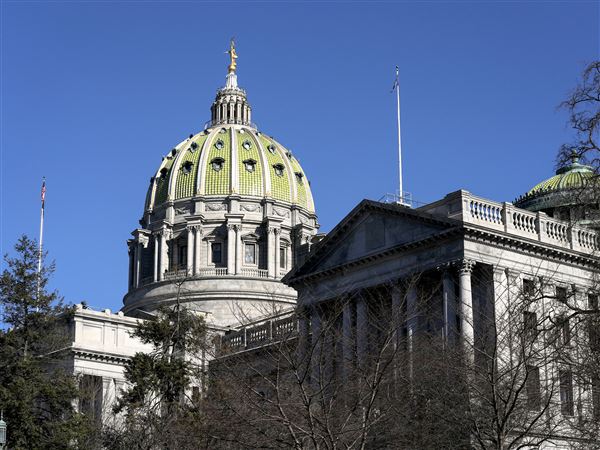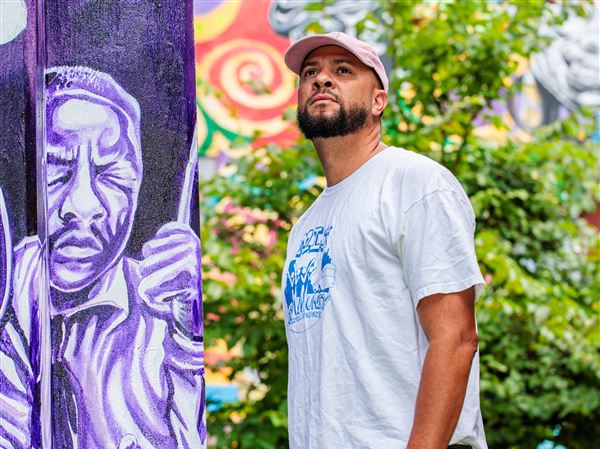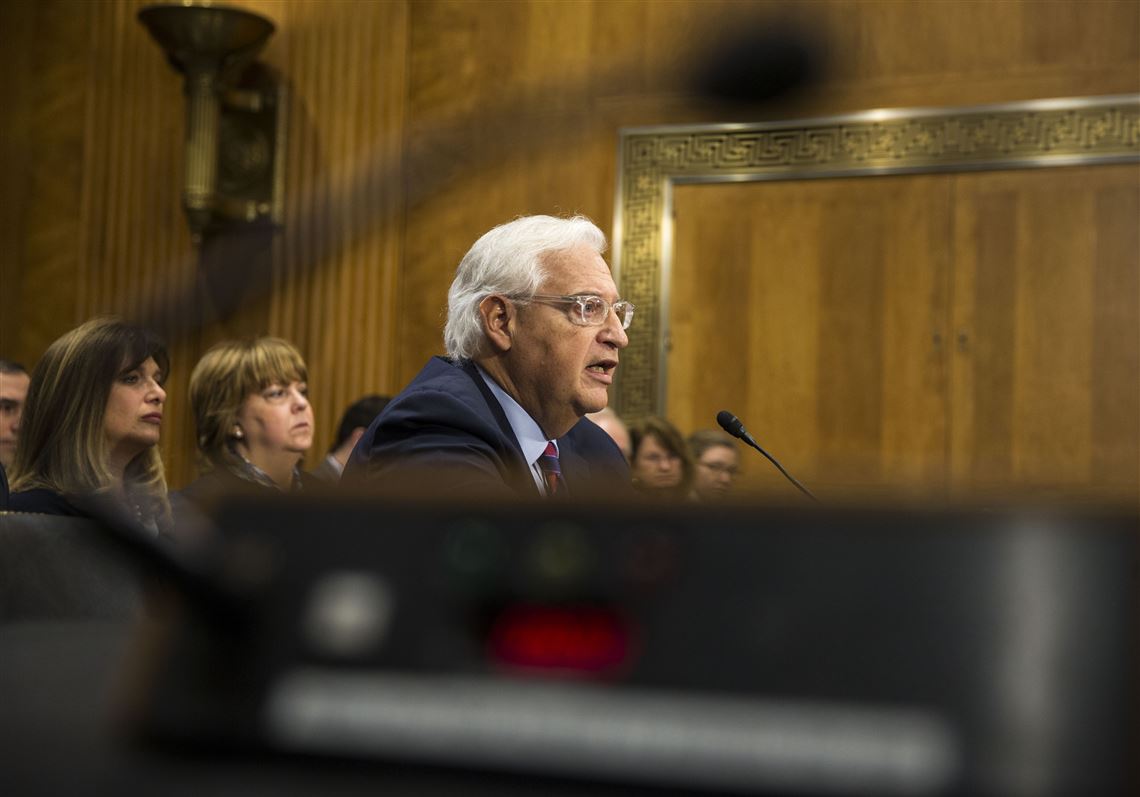JERUSALEM - In his first on-camera interview since taking up his position this year, U.S. Ambassador David Friedman declared that only 2 percent of the West Bank is occupied and that settlements are part of Israel, sparking angry reaction from Palestinians.
Chief Palestinian negotiator Saeb Erekat described the interview with the Israeli news site Walla on Thursday as the “latest attempt by Freidman to “advocate and validate the Israeli government’s policies of occupation and annexation.” The U.S. ambassador had previously referred to Israel’s “alleged occupation” of the West Bank.
The State Department said Freidman’s comments do not indicate a policy shift and “should not should not be read as a way to prejudge the outcome of any negotiations that the U.S. would have with the Israelis and the Palestinians.”
When asked by a reporter if the ambassador had gone “rogue,” State Department spokeswoman Heather Nauert’s response appeared to imply that there were other figures that were more representative of U.S. policy - like Middle East envoy Jason Greenblatt and President Trump’s son-in-law and adviser Jared Kushner.
“An ambassador is supposed to represent his official government’s position,” said Xavier Abu Eid, an adviser to the Palestine Liberation Organization’s negotiation department. “It’s really confusing.”
Friedman’s appointment as U.S. ambassador earlier this year caused a stir, and Palestinians have accused him of sounding more like an Israeli official than an American one. An Orthodox Jew who had worked as Trump’s bankruptcy lawyer and had no political experience, Friedman and his family had supported settlements in the West Bank that most of the international community deems illegal.
Here are some of the key points he made:
On settlements: “I think the settlements are part of Israel.”
This is a departure from U.S. policy. Israel captured the West Bank from Jordan during the 1967 Six Day War. Since then, Israel has expanded its presence in the area, building towns and communities, with nearly 400,000 Israelis now living in the occupied territory, fenced off from Palestinians. That doesn’t include settlements East Jerusalem, which was also seized in 1967.
A 1978 opinion issued by the State Department’s legal adviser deemed settlements built on land captured by Israel in 1967 as “inconsistent with international law". That has never been formally refuted though President Reagan said in 1981 that he did not see them as illegal. Since then, the United States has generally referred to settlements in softer terms, such as an “impediment to peace” but no administration has deemed them as part of Israel.
Israeli settlers commended Friedman for “using facts to describe the reality in a Judea and Samaria,” the biblical term for the West Bank.
On U.N. Resolution 242: The idea was that “Israel would retain a meaningful portion of the West Bank and it would return what it did not need for peace and security.”
U.N. Resolution 242, as Friedman also pointed out, is one of the most widely agreed upon resolutions on the conflict, and has been the basis for past negotiations. It made two main points. The first was that Israeli armed forces would withdraw from the territory occupied by Israel in 1967, which is contradictory to Friedman’s comments.
The second was the termination of “belligerency” and acknowledgement of the “sovereignty, territorial integrity and political independence of every State in the area and their right to live in peace within secure and recognized boundaries free from threats or acts of force.”
It also added that “demilitarized zones” may need to be established to ensure security for all states in the region.
On occupation: “[Israelis] are only occupying 2 percent of the West Bank, so I think that’s consistent with resolution 242 and its been the basis for 50 years for the parties to proceed.”
Most of the international community views the entire West Bank as occupied, and as already stated, Resolution 242 called for the removal of all Israeli forces.
As a result of the 1993 Oslo Accords, the West Bank has been divided into three areas of control.
Area C consists of around 61 percent of the West Bank and Israel retains almost complete control of the area. It has full security control and also most civil matters, including land allocation and construction. Israel has now allocated 63 percent of Area C to local and regional settlement councils, according to B’Tselem, a Jerusalem-based liberal nonprofit that documents human rights violations in the occupied territories.
Area B is 22 percent of the West Bank. It is under joint control by Israel and the Palestinian Authority.
Area A is around 18 percent of the land of the West Bank and includes most of the Palestinian people and all Palestinian cities. The Palestinian Authority controls the area but the Israeli military still carries out operations inside.
The arrangement, which was meant to be temporary, effectively means that Palestinian population centers “are floating islands in an area of Israeli control” cut off from resources or room for expansion, said Amit Gilutz, a spokesman for B’Tselem.
The 2 percent figure refers to built up settlement areas within Israel’s separation boundary, he said. “It disregards the myriad of mechanisms Israel uses to dispossess Palestinians from their lands and resources in the West Bank.”
The total area of the West Bank assigned to settlement councils is around 40 percent, he said.
On moving the U.S. Embassy from Tel Aviv to Jerusalem: “I do believe he will decide to move the embassy and most importantly declare Israel as the eternal capital of the State of Israel and the Jewish people”
President Donald Trump made the pledge during his campaign, but Palestinians have described it as a “red line.” The United States’ previous position has been that the status of Jerusalem should be resolved through negotiations. Israel captured the eastern part of Jerusalem, which was then under Jordanian control, during the 1967 war. Israel considers Jerusalem its “eternal, undivided capital.”
Every U.S. administration has wrestled with the issue of whether to move the embassy since the 1967 war.
On the two-state solution: “ I think that phrase has largely lost it’s meaning ... It’s not a helpful term, because it just doesn’t mean the same thing to different people.”
The Trump administration has refrained from endorsing a two-state solution, which has been the basis for previous peace negotiations.
On Trump: “I think he trusts me. I have great respect and admiration for him, and we are close . . . I have no doubt that he is not the slightest bit, in any way shape or form, racist, misogynistic, anti-Semitic, homophobic, or any other horrible adjective that you can come up with, it’s not him.”
First Published: October 1, 2017, 5:23 p.m.
